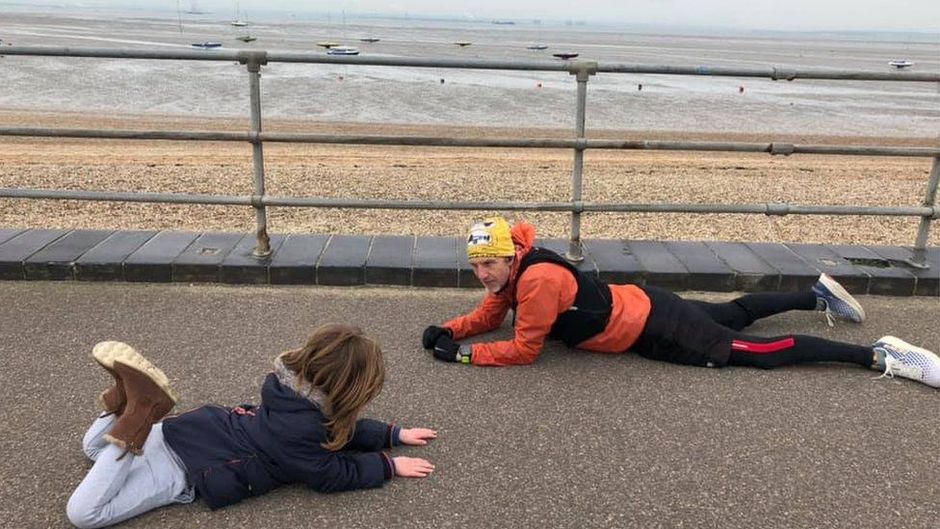It is about putting someone else’s needs first for a while, being willing to step up and help someone.
 Ian got down on the ground with Rudy when he knew he was autistic. / Photo: Facebook Better to be different.
Ian got down on the ground with Rudy when he knew he was autistic. / Photo: Facebook Better to be different.
Every now and then I read something that lifts my soul for the rest of the day, sometimes even for the rest of the week! A while ago it was one of those days…
I was looking on the BBC website and saw the story of a mum, Natalie, and her young autistic son, Rudy, who also has a range of additional needs.
They had been for a walk along the beach when Rudy became distressed and was having a meltdown, lying down on the floor. That’s when, instead of the usual ‘looks’ and harsh comments from strangers that so many of us know all too well, they met Ian.
Ian chose kindness, and looked for ways to help, getting down with Rudy and engaging with him. Ian saved the day. You can read the full story here.
As my heart was thrilled reading this story, as I’m sure yours will be, it got me thinking about times when my autistic son has been struggling and when, instead of the usual comments, tuts and stares, people have simply asked how they could help; have chosen kindness. Admittedly, it hasn’t happened often, but when it does it totally transforms the situation for us all.
It also got me thinking about what motivates people to respond positively, or negatively, to a situation like this. Maybe it is all about who people put first in that moment. Is it them?
Their peace has been shattered by a child having a meltdown and now they are angry about the effect it’s having on them? Or, as modelled by Ian in this story, is it about putting someone else’s needs first for a while, being willing to step up and help someone.
It reminded me of the story Jesus told of the Good Samaritan. A man was mugged, beaten up and left for dead and two people avoided him and walked by on the other side of the road before a Samaritan man helped him and went the extra mile to make sure he was OK. You can read about it in the Bible in Luke 10:25-37.
And at the end of it all, which response is the one that has the best, lasting, outcome? A selfish response leaves everyone feeling angry and upset, wounds that can last for ages.
A kind response brings joy, encouragement and friendship, as well as memories and a story that can last a lifetime.
So, I’m challenging myself to ‘be like Ian’ next time I see someone struggling; to see how I can help, to choose kindness, to put the needs of someone else first for a while.
I hope for people to ‘be like Ian’ for me and my son when we’re out, maybe I need that to start with me being willing to do the same. How about you?
Mark Arnold, Director of Additional Needs Ministry at Urban Saints. Arnold blogs at The Additional Needs Blogfather. This article was re-published with permission.

Las opiniones vertidas por nuestros colaboradores se realizan a nivel personal, pudiendo coincidir o no con la postura de la dirección de Protestante Digital.
Si quieres comentar o